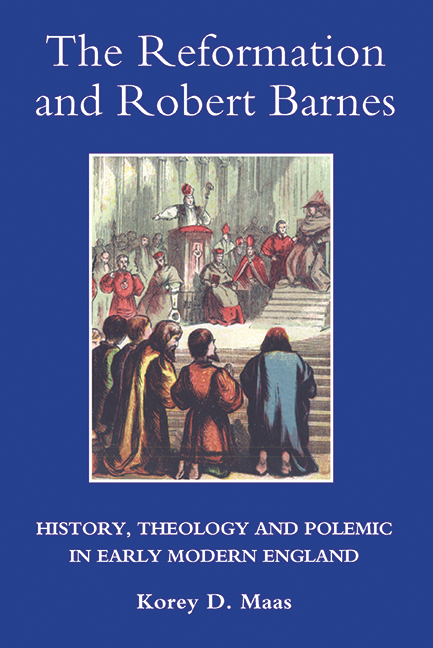Book contents
Summary
The life, thought, and influence of the Henrician reformer Robert Barnes have not received overabundant attention from historians of the sixteenth-century reformations. Though he never attained the prominence or exerted the influence of some of his closest contemporaries and associates – influential figures such as Thomas Cranmer, Thomas Cromwell, and Martin Luther – his place in the early English evangelical movement was by no means insignificant. To the contrary, Barnes has been recognised as ‘one of the most important, and among the most controversial, of the early reformers’. As a Doctor of Theology, prior of the Cambridge Augustinian friary, and one of the ‘most important of the group’ associated with the White Horse Inn, Barnes figures prominently in treatments of Cambridge University and its early role in the promotion of Luther's idea in England. It is in this context that Barnes's Christmas Eve sermon of 1525, preached in the Cambridge church of St Edward's, has been identified by some as the first ‘public manifesto’ of the Cambridge evangelicals. One recent work goes even so far as to suggest that the subsequent conservative reaction to this sermon was ‘the most important event of the period between 1526 and 1529’.
The conservative response to Barnes's sermon, resulting in his trial, imprisonment, and eventual escape to the continent, also proved to be the most immediate cause of yet another unique contribution to the early English reformation. Attempting to justify his fugitive status by sharply critiquing the treatment he had received at the hands of his judges, Barnes, from the safety of Germany, penned a ‘supplication’ to Henry VIII. Appended to this defence of his preaching and later flight was a series of theological commonplaces which comprised ‘the nearest thing to a work of systematic theology that the Henrician reformers produced’. The distinctively Lutheran emphases evident in this treatise, combined with the significant fact of Barnes's exile having led him to Wittenberg and into a friendly association with its leading reformers, would also further draw Barnes into the centre of ecclesiastical events not only in England but also abroad.
- Type
- Chapter
- Information
- The Reformation and Robert BarnesHistory, Theology and Polemic in Early Modern England, pp. 1 - 6Publisher: Boydell & BrewerPrint publication year: 2010

